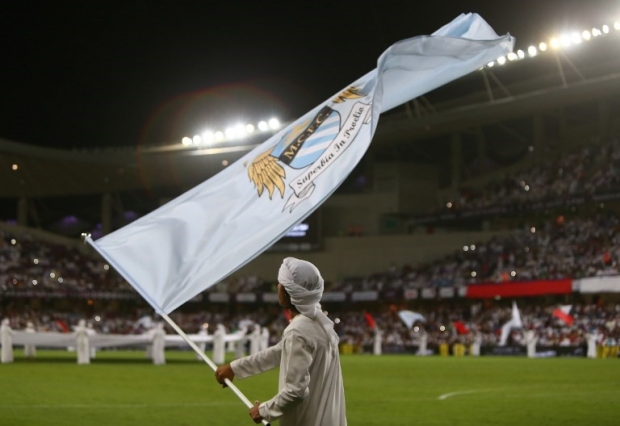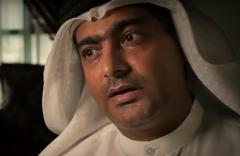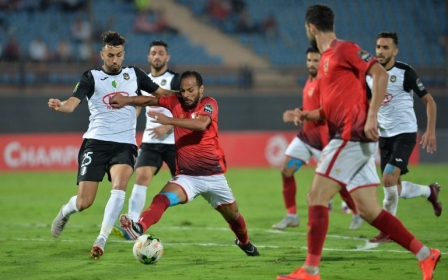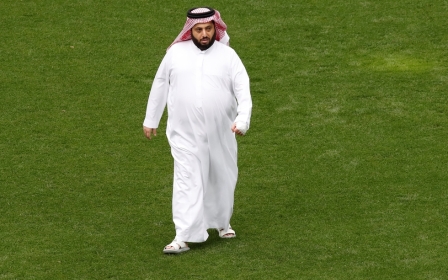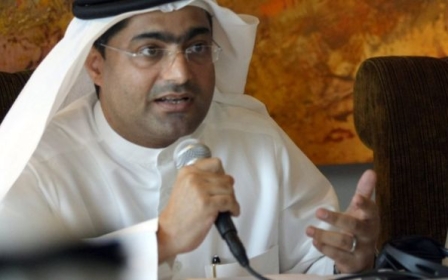Pep Guardiola's strange silence on UAE abuses
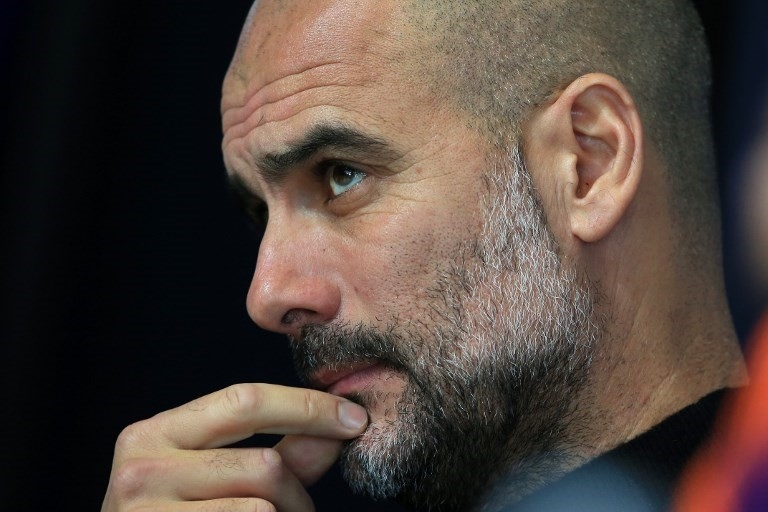
"Not just every political prisoner, but every human being around the world should appreciate his moral leadership. He makes us better as a society.”
These were the words of the Catalan political activist and prisoner, Jordi Cuixart, describing Manchester City Football Club manager Josep “Pep" Guardiola last March.
Guardiola is one of the most recognisable and successful football coaches of all time. He has managed teams in Spain, Germany and England, and as an indication of the level of success that comes with having him at the helm, he holds the managerial record for the most consecutive league wins in La Liga, Bundesliga and Premier League.
ٍTranscending sports
Perhaps unusually for a modern-day sports icon, Guardiola hasn’t shied away from speaking out on political issues that matter to him.
The intense scrutiny and divisive nature of competitive sports, plus the risk of losing lucrative sponsorship contracts, is often a deterrent that prevents high-profile sporting figures making political pronouncements in public. However, the Manchester City manager has bucked this trend – to an extent.
Guardiola is one of the most recognisable and successful football coaches of all time
Most recently, Guardiola articulately addressed the alleged racist abuse of one of his star players, Raheem Stirling, during the Chelsea vs Manchester City game.
While some of the football commentators saw this incident through the narrow prism of the sport, Guardiola appreciated that this was an issue that transcended football and contextualised it as a wider societal problem. “Racism is everywhere, it's not just in football,” said Guardiola last week. “We have to fight to make a better future for everyone, not just in England but everywhere.”
The Catalan movement for independence from Spain was another political matter which Guardiola has proactively and vocally sought to be associated with. In June 2017, Guardiola addressed a crowd of more than 40,000 in Barcelona to support the Catalan government’s referendum on independence from Spain last year.
The vote was later declared illegal on 7 September 2017 and suspended by Spain's Constitutional Court after a request from the Spanish government, who declared it a breach of the constitution.
A rebel with a cause?
It is believed that his pro-independence stance means he is now unlikely to ever be appointed as coach of the Spanish national team. However, Guardiola continued to show his support and sympathy for the Catalan cause publicly by wearing a yellow ribbon on his clothing.
In particular, the yellow ribbon was a symbol of protest against the imprisonment of political prisoners, including Jordi Sanchez, formerly president of the Catalan National Assembly, and Jordi Cuixart, a Catalan businessman and political activist, for their role in organising the independence vote.
"To rebel like that, you have to be something tough to be in prison, and they are still there. Until they are out, always they will be with me. They can suspend me for that but the other people are in jail.”
He added: “Jordi Cuixart and Jordi Sanchez are in prison for more than 60 days without their families. They want to suspend me, Uefa, the Premier League, FIFA, it’s OK. I will be suspended.”
A stark contrast
It is perhaps unsurprising then that this stance has led to accusations of hypocrisy, as the usually thoughtful and lucid Guardiola has taken an unintelligible stance towards political prisoners in his club owner’s homeland, the United Arab Emirates.
The private equity company that owns Manchester City, ADUG, has consistently denied any connection to the government of Abu Dhabi, claiming their investment in the club is merely enabled by a group of “prestigious businessmen”.
Yet the club’s stadium bears the name of the state airline Etihad and the country’s tourist authority’s advertising adorns billboards prominently positioned in front of the global TV audience. ADUG is owned by Sheikh Mansour bin Zayed Al Nahyan, a member of the Abu Dhabi royal family and deputy prime minister of the UAE.
The investment of more than £1bn (over $1.2bn) in transforming the football club has brought with it valuable publicity and projected a positive image of the UAE around the world
In any case, the investment of more $1.2bn in transforming the football club has brought with it valuable publicity and projected a positive image of the UAE around the world.
One case in particular which illustrates the stark contrast in Guardiola’s positions is that of Ahmed Mansoor, the award-winning Emirati human rights activist and blogger who was imprisoned a year ago. According to Amnesty International, Mansoor’s electronic devices were targeted with repeated and sophisticated hacking attempts by the UAE government.
A year ago, security officials entered his home and took Mansoor away – since then he has been held in solitary confinement and not had access to a lawyer.
Mansoureh Mills, a former Amnesty researcher who worked closely with Mansoor, said that she once asked him why he put himself in danger by speaking out on human rights in Abu Dhabi at the risk of his personal safety. He responded: “I love my country and I want my country to improve. That is why I do what I do."
An inconsistent approach
However, when asked about Mansoor's case in March 2018, Guardiola responded: “Every country decides the way they want to live for themselves…If he decides to live in that [country], it is what it is. I am in a country with democracy installed since years ago, and try to protect that situation.”
This surprisingly parochial perspective on the case seems to imply that Guardiola’s empathy with the Catalan prisoners stems from the fact that he already lives in a democracy and therefore believes they deserve better treatment. This appears nonsensical and it is perhaps more likely that Guardiola will contrive any argument to steer clear of upsetting his club owners.
It is telling that after the publication last month of an investigation into alleged financial irregularities at Manchester City by Der Spiegel, the German newspaper, Guardiola showed blind loyalty towards the club’s hierarchy.
When asked if his team could potentially be suspended from competing in European competitions for violating financial fair play regulations, he responded: “We will not be banned, no… That's what I think because of what my chairman and my CEO have explained to me and I trust in them.”
While some might praise Guardiola for his “moral leadership” for standing up for some political prisoners in Spain, it seems his own political activism has made him a hostage to fortune. His reported $15m-plus a year salary as Manchester City manager seems to have brought with it weak excuses and a conveniently inconsistent approach to freedom of speech.
- Mostafa Mohamed is a freelance Egyptian journalist who has worked as a correspondent for several Arab and international journals and magazines, writing on economics and sports.
The views expressed in this article belong to the author and do not necessarily reflect the editorial policy of Middle East Eye.
Photo: Manchester City's Spanish manager Pep Guardiola attends a press conference at City Football Academy in Manchester, England on 11 December 2018 on the eve of their UEFA Champions League Group F football match against Hoffenheim (AFP)
New MEE newsletter: Jerusalem Dispatch
Sign up to get the latest insights and analysis on Israel-Palestine, alongside Turkey Unpacked and other MEE newsletters
Middle East Eye delivers independent and unrivalled coverage and analysis of the Middle East, North Africa and beyond. To learn more about republishing this content and the associated fees, please fill out this form. More about MEE can be found here.


